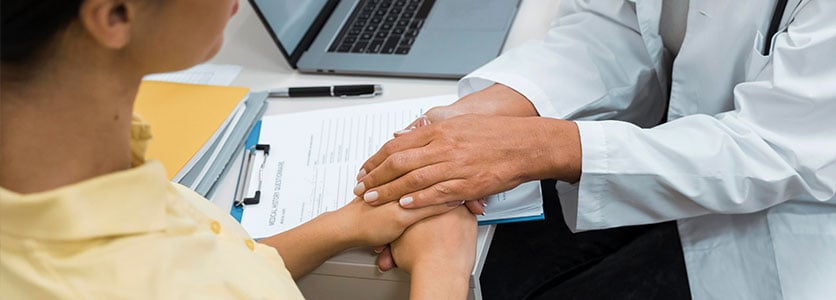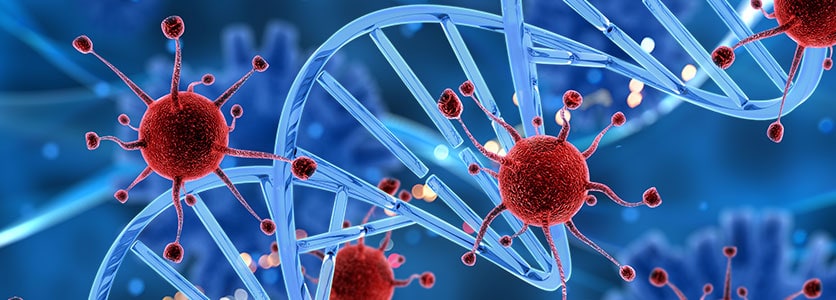In the case of a cancer patient, ignorance is not bliss. Awareness of this disease can make all the difference between feeling despair and feeling hopeful. As far as emotions are concerned, an oncologist is trained to be very delicate when a patient is newly diagnosed with cancer.
Coming to terms
“The first response to diagnosis is usually grief,” says Consultant Medical Oncologist Dr. Kananathan Ratnavelu of Columbia Asia Hospital – Bukit Rimau. “There is also disbelief, fear, anxiety, anger and sadness. Immediately, a newly diagnosed cancer patient think he or she is facing death.”
According to Dr Kananathan, the patient will go through these various phases but slowly, these emotions will, generally, alleviate as the cancer patient becomes more aware of the disease itself and feels more empowered to fight it.
“The most important factor in the treatment of cancer is that the patient must be hopeful, optimistic and motivated. The mindset of the cancer patient is more important than cancer drugs or even doctors,” he adds.

Strategising the battle
After the diagnosis stage, the cancer treatment strategy is laid out. The oncologist will review the patient’s history of present illness and investigate all the cancer resources the patient has had, before customizing a treatment plan. According to Dr Kanan, today’s therapies for cancer patients are plenty with more new treatments being tested out.
“Depending on the case, we have to decide what is best for the patient, be it surgery, chemotherapy, radiotherapy, immunotherapy or targeted therapy,” says Dr Kanan. He stresses that delays in treatment may result in poor outcomes. “This is when the patient can go from a curable stage to an incurable stage. So, giving up or not wanting to find out by not going for screenings, would be futile as there are cancer patients who resume normal lives after their treatments. My advice to my patients — do not give up without a fight.”
The immediate routine
Pertaining the routine of a cancer patient, that depends on the patient’s age and the kind of responsibilities he or she has. Some cancer patients who are employees still need to get to work. In cases like this, they have their treatment done in between their daily routines. Perhaps they go to work in the morning and later go for their radiotherapy after work or in the evening. For patients who are undergoing chemotherapy, considerate employers give them some time off during this period.
“I know of a patient who had difficulties in getting leave so he had to plan his chemotherapy on a Friday so he can rest on Saturday and Sunday; and then return to work with some energy on Monday,” Dr Kanan shares.
“Generally, undergoing chemotherapy can be challenging. There will be limitations to otherwise normal routines as the patient’s energy level reduces. You will have to combat issues of daily life. Still, some patients have little to no side effects.”

Emulating Mr Swarner
Dr Kanan shares a true story about a cancer patient named Sean Swarner, the first cancer survivor to conquer Mouth Everest.
“At 13, he developed Stage 4 Hodgkins disease, a type of cancer that attacks the lymphatic system, affecting the body’s immunity. At 16, he developed Askin’s Sarcoma in his chest; a cancer that stems from the muscle or bone,” relates Dr Kanan. “His family was told that even with treatment, the outcome for Sean seemed bleak. Nevertheless, he underwent a full range of treatment; from surgery to chemotherapy to radiotherapy.”
After Swarner completed his treatment on May 7th, 1990, not only did he resume his studies, he went on to graduate with a degree in psychology. It was during his graduate program in psycho-oncology that he knew the capacity of the human mind when it comes to healing. Soon after, he decided to conquer Mount Everest which he did on May 16th 2002, 12 years after his final treatment. Swarner dedicated this triumph to all cancer patients.
In a nutshell
To summarize the steps to take once you are diagnosed with cancer is to explore the options of therapy such as surgery, chemotherapy, radiotherapy, targeted therapy and immunotherapy. These are the pillars of cancer therapy hence discuss it at length with your doctor.
“When you look for a doctor, find the right physician who will take care of you; one who makes you feel comfortable and fight with you in your battle against cancer. He should be presenting you with treatment options that are available. If you are not convinced and have doubts, do not hesitate to get a second opinion.”
Cancer patients are also urged to seek professional nutritional advice. They are also encouraged to keep fit by doing regular exercises such as qigong, taichi or yoga. These are beneficial for healing. For strength and focus, Dr Kanan advises patients to embrace spiritual guidance, more so during the treatment period.
He ends the interview with a quote by Lance Armstrong, former American professional cyclist who won tour De France seven times back to back after he completed his treatment for testicular cancer. “We have two options, whether medically or emotionally. One is to give up and the other is to fight like hell. I will choose fight like hell.”
Share:
Was this article helpful?
Share:
Was this article helpful?
Health Packages
Elevate your health with tailored health packages at Columbia Asia Hospital. Take charge of your health journey today.

